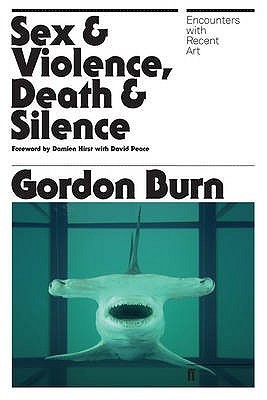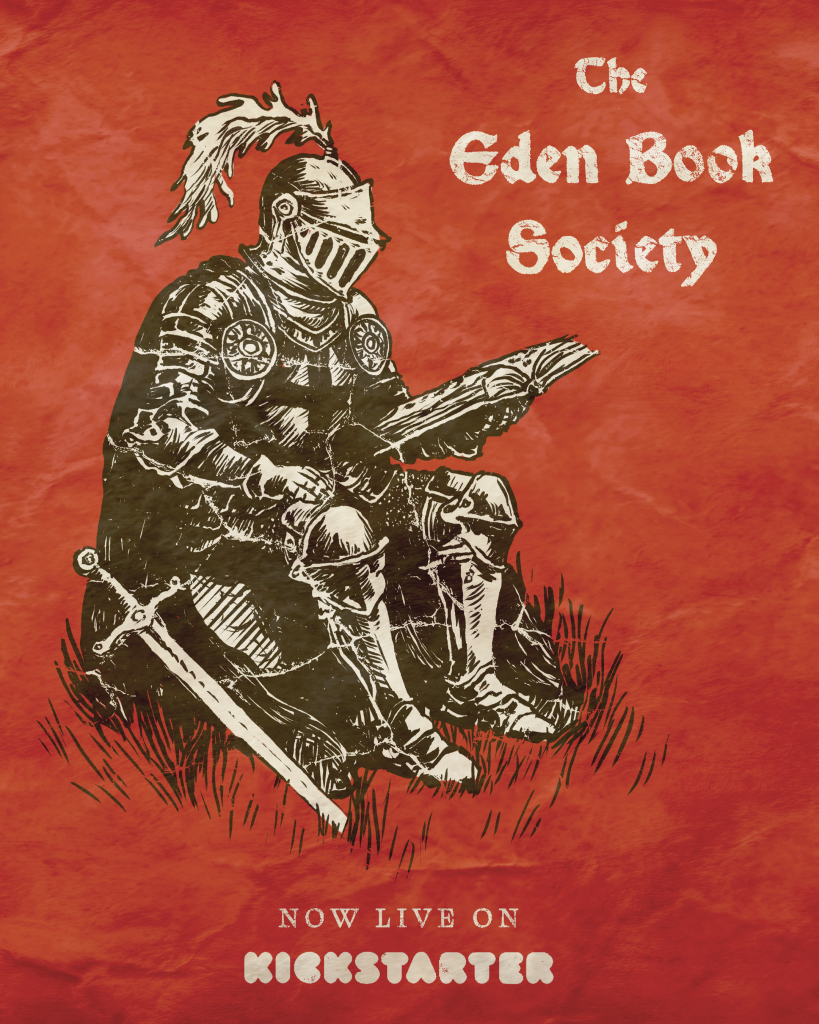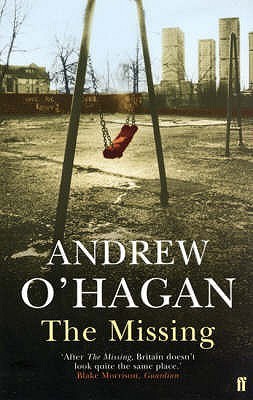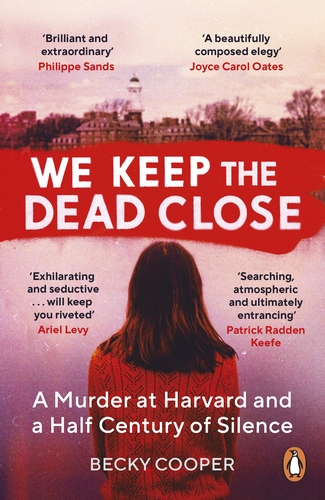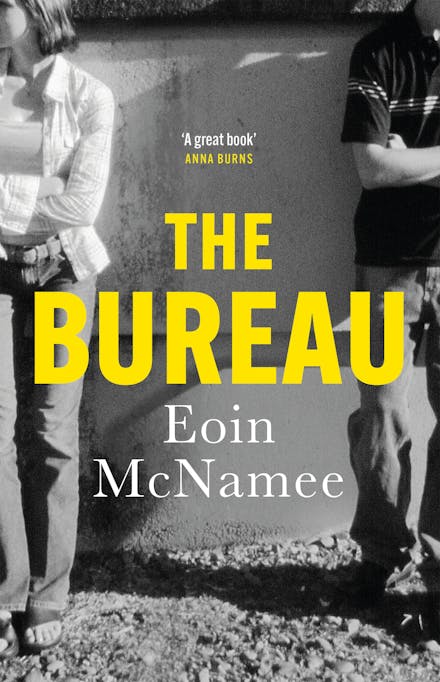A favourite Booktuber recently posted a video celebrating their ninth anniversary on the channel, marking the occasion by sharing and talking about a favourite book from each one of those years. I always enjoy these personal reflections – as most people who read this will know, I am an incorrigible list person. Watching the video set me thinking about what my own chosen books would be from the years of this blog. At which point, I was shocked to discover that I actually began posting here in 2011, not 2013 as I had thought.
2011 was the year Chris and I started living together, the year I left London and moved to Hastings, the year Chris published his twelfth novel The Islanders. I had not yet published a novel. From my end-of-year post I can see that I spent most of 2011 writing short fiction, stories such as ‘The Elephant Girl’ (which would eventually find its way into The Dollmaker), ‘The Barricade’, and ‘Fairy Skulls’, which remains a favourite (and not least because I can still see the expression on Chris’s face when I told him what the title was).
Reading that end-of-year post brings such predictably mixed feelings. Aching sadness, enormous gratitude, and not a little befuddlement. Fourteen years is nothing, just the flick of an eyelash, but in terms of personal history and when viewed in retrospect it can feel like an epoch. I look at the photograph Chris took of me on Boxing Day 2011, standing outside a model shop in Swanage that had a Dalek in the window. I’m wearing a black corduroy baker boy cap I ended up leaving somewhere on the tube (I am always losing hats on the tube), a three-quarter-length denim coat with a fleece collar and silver quilted lining I loved so much that in the end it grew too ratty (even for me) and I had to let it go. I am laughing now, as I was in the photo, because Chris never did stop castigating me for my nostalgic attachment to Doctor Who, though he was always there with the camera to record me standing next to a Dalek, a Tardis, a life-size cardboard cut-out of David Tennant.
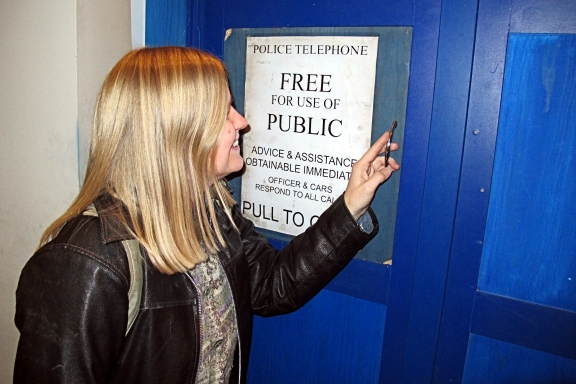
I did not begin to keep an ongoing record of the books I read until 2012, and even then it was sketchy – just a bald list of titles. In the years since then, the habit has evolved to become an essential part of my reading practice, such that I now have a document for each year, listing not only the titles I’ve read, but my thoughts about them, the date I finished reading them and an informal score out of ten. Such things are arbitrary and might shift on a whim, but what is genuinely interesting and useful is to look back on the books themselves: what I was reading, when and why, how my interests have shifted and continue to evolve. From around 2015 onwards, my books of the year documents also include lists of books I was interested in reading, together with links to articles I’d found useful or pertinent. To possess this kind of record is invaluable, a window into the past, a distillation of time, evocative as a photo album.
Because I don’t have such a record for 2011, the year this blog began, I am going to choose instead one of the books I highlighted in my end-of-year post, Lila Azam Zanganeh’s The Enchanter: Nabokov and Happiness, which has never faded from my mind and that now feels all the more relevant to me in terms of what it’s doing, not just in talking about Nabokov (and I repeat, if you are thinking of giving him a go then this is the best introduction to his work that could possibly exist) but in terms of form. I have heard that Lila finally has a new novel in the works – I am sure it will be worth the wait.
For the rest, I am picking one book per year of the life of this blog to date, up to and including 2024. I have tried to make my choices as instinctual as possible – which book sums up its year for me, which still resonates, which still feels relevant to me as a writer from where I am now. One of the strangest things about being a writer is having an ongoing and permanent record of one’s progress through the world. Even though I don’t tend to revisit older work unless I have to, I do like to look at these lists, which show me as much about what has not changed as about what has.
2012: This must have been the year M. John Harrison’s Empty Space was published, because I can see I reread both Light and Nova Swing – the first two parts of the Kefahuchi Tract trilogy – in the run-up to it. Another hugely important book from 2012 was Keith Ridgway’s Hawthorn & Child, an anti-police-procedural that has been an ongoing inspiration ever since. But the novel I’d like to put forward as my book of 2012 is Margaret Drabble’s The Peppered Moth. I remember picking it up almost by chance after a spate of particularly disappointing reading experiences and being powerfully affected by just how competent Drabble is at the sentence level, how articulate, how erudite. I still remember the feeling of relief at being in the company of someone who could actually write. Thinking about this book now, Drabble’s approach to fiction within the context of fact – and vice versa – feels especially relevant to my current interests.
2013: What a weird reading year that was. Some very odd (not to say disposable) choices here. Two stand mountains high above the rest, namely Richard House’s The Kills (still one of the most important British novels of the century so far) and – my choice for the year – Gordon Burn’s Happy Like Murderers, the first book of his I read and a defining moment for me.
2014: Another weird one, with again just two books standing out, Howard Jacobson’s J, which I still think about a lot, and Paul Park’s All Those Vanished Engines, which remains a touchstone work for me, a novel after my own heart.
2015: I suppose this has to go down as the year everyone (including me) was reading Hanya Yanagihara’s A Little Life, but while it’s true there’s no forgetting it, it wouldn’t be my book of the year. That would have to be between Rachel Cusk’s Outline – my first encounter with her work – and Joyce Carol Oates’s Carthage, a novel of hers hardly anyone talks about but that has entered my soul and that I’m intending to read again soon.
2016: A lot of horror on here, a situation not helped by the fact that I happened to be judging the British Fantasy Award for best horror novel. But this was also the year that I read Thomas Bernhard’s The Loser (my first encounter with his work and still my favourite), Alasdair Gray’s great Lanark, and John Cornwell’s Earth to Earth, a unique work of true crime that had a hand in inspiring The Good Neighbours and that was a significant step on the journey to where I now am. It was Chris who introduced me to this book – he read it when it first came out and it’s his beautiful first edition that I still have. I am glad to say it is now widely available again, thanks to a recent reissue by my own publisher, Riverrun.
2017: The year of the Shadow Clarke, so a lot of SF here, plus I seem to have overdosed on horror again – don’t know what was going on there. But this was also the year I read the wonderful, wonderful H(A)PPY by Nicola Barker, as well as Katie Kitamura’s A Separation, which I happened to reread last weekend and that seemed even better the second time around. This is everything a mystery novel can be and do and I wish to God I’d written it myself.
2018: Looking down this list I remember the second half of the year especially as a kind of breakthrough, six months in which I read a whole sequence of books that turbo-charged my ambition and changed my whole way of thinking about what I wanted to achieve. Ann Quin’s Berg, Gwendoline Riley’s First Love, Greg Baxter’s Munich Airport, David Shields’s Reality Hunger, Gabriel Josipovici’s The Cemetery in Barnes all bring memories of intense happiness but particularly worthy of mention are Martin Amis’s gleaming amalgam of essays and fiction The Second Plane and Don DeLillo’s Falling Man, another perfect short novel that inextricably combines zeitgeist with personal vision.
2019: I can see I read the whole of the Gordon Burn Prize longlist, which as always threw up some good books, most notably Eoin McNamee’s The Vogue and David Keenan’s For The Good Times, which deservedly won. Martin MacInnes’s second novel Gathering Evidence is right in there, too, as is Jeff Vandermeer’s Dead Astronauts. But the back end of 2019 saw me devouring The Topeka School, 10:04 and Leaving The Atocha Station by Ben Lerner, one after the other. What joy I found here.
2020: COVID, and I read loads. I remember early in lockdown reading Martin Edwards’s hugely entertaining The Golden Age of Murder, a history of the Detection Club, which sent me off on a mission to fill some of the gaps in my knowledge of classic detective fiction. I then appear to have read both the Clarke Award shortlist and the Hugo Best Novella shortlist, for reasons that are probably best left unexplored. In amongst all that though I was lucky enough to encounter for the first time Malcolm Lowry’s Under the Volcano, Gordon Burn’s Born Yesterday and Helen Garner’s The First Stone, which cemented her for me as one of the most important writers in my life.
2021: Another weird one, best described as diffident. Most memorable for reading David Peace’s Red Riding 1980 and 1983 back to back on an interminable round-the-houses train journey from Preston to Glasgow, and for The Names by Don DeLillo, which I need to reread soon just so I can experience it again.
2022: Difficult still to talk about these years. Starting to reread a lot of Ballard. Stalking the Atomic City by Markyan Kamysh, Souvenir by Michael Bracewell, and Optic Nerve, by Maria Gainza.
2023: In Ascension by Martin MacInnes, Alma Cogan by Gordon Burn, Fassbinder Thousands of Mirrors by Ian Penman and Wish I Was Here by M. John Harrison.
2024: Loads and loads of Ballard. But also Thunderclap, by Laura Cumming, Kairos by Jenny Erpenbeck and The Year of Magical Thinking by Joan Didion.
What fascinates most about all of this is how mixed each of these years has been in reading terms. Invariably there are those books I have encountered that would not have been top of my reading list – books read for events, or from awards shortlists – as well as those I have succumbed to, unable to resist the hype. A hazier category belongs to those that I enjoyed well enough while reading them, but that faded from memory pretty much as soon as they were read. Some are recognisably great, but not for me. Many are good books, but not world-shakers. But always there are those that remind you of what you are doing here, what you hope to achieve. These are the books that form the structural foundations of the writing life as well as the reading life, the books you are hoping – always – to stumble upon, the books that reinforce your aspirations, or change your mind.

